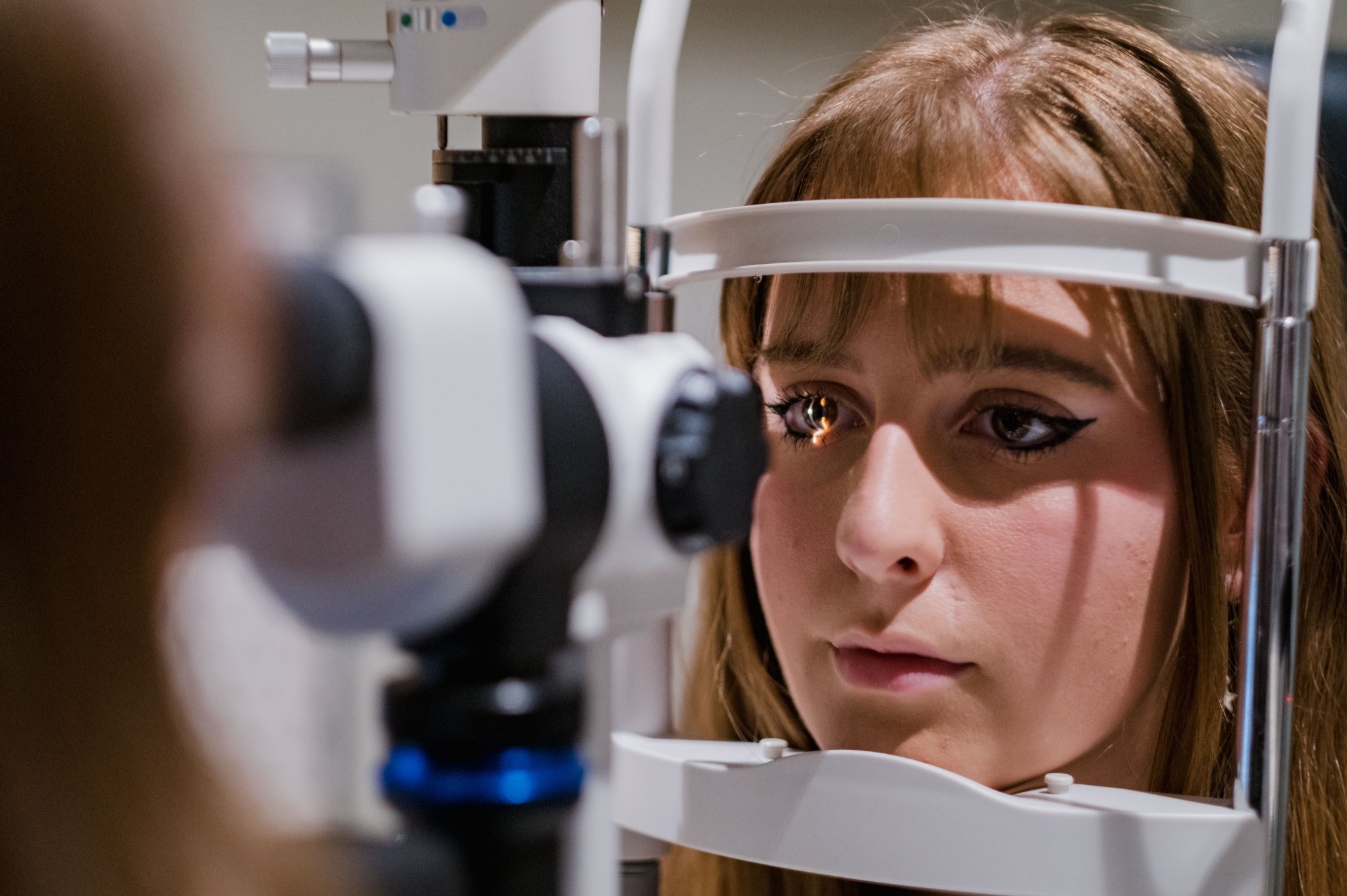Eye examination
What happens during an eye exam?

A comprehensive eye exam includes a variety of tests and evaluations to determine the health of your eyes and the quality of your eyesight.
Some of the preliminary testing and data gathering will be performed by an assistant or technician. An optometrist will always perform the health evaluation of your eyes, the prescription of your eyeglasses and/or contact lenses, and the analysis of the findings of your exam.
Depending on your needs, your eye exam will last anywhere from 30 to 60 minutes. When you make an appointment for your exam, ask how long your exam will be so you can plan your day accordingly. Be aware that your optometrist may wish to dilate your pupils, which may affect your near and driving vision for an hour or so after your examination. If you have diabetes then you will be required to have your pupils dilated so we can better exam your retina.
Though each eye exam is unique, the following tests are performed at most complete eye exams. More tests or fewer tests may be performed at your optometrist's discretion.
Though these are the most common tests performed during a routine eye exam, your optometrist will determine the scope of your exam and what tests need to be performed to provide an accurate diagnosis and treatment. The fitting of contact lenses requires additional testing and follow-up exams before a contact lens prescription can be written.
In some cases, your optometrist will feel it's necessary for you to have additional specialised tests to rule out or treat eye disease or general health problems. These tests may be performed by your optometrist or may require that you see an ophthalmologist or specialist. Be sure to listen to your optometrist carefully at your eye exam so you fully understand your optometrist's recommendations and why additional testing may be required.












